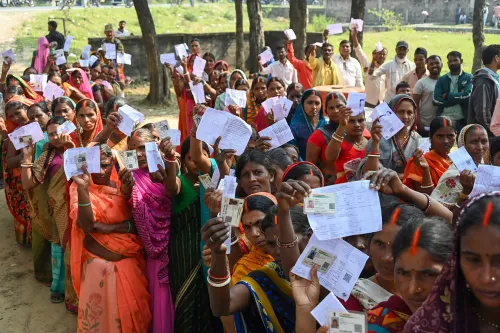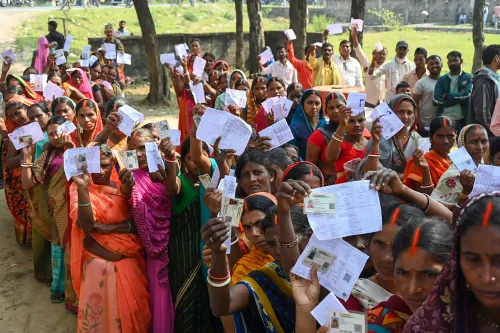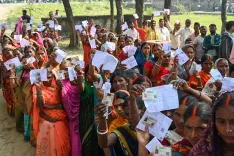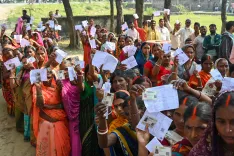Is Sikhs for Justice Under Threat? Agencies Target Khalistan's Most Dangerous Element

Synopsis
Key Takeaways
- Inderjeet Singh Gosal's arrest signifies increased scrutiny on the SFJ.
- The SFJ is known for its propaganda efforts for Khalistan.
- Indian and Canadian agencies are collaborating on intelligence sharing.
- The potential for radicalization exists within the Sikh community in Canada.
- International concerns over the SFJ’s violent tendencies are growing.
New Delhi, Sep 23 (NationPress) The recent detention of Inderjeet Singh Gosal in Canada signals a decisive move by agencies against the Sikhs for Justice (SFJ). Gosal serves as the primary coordinator for the banned SFJ in Canada, orchestrating several referendums aimed at garnering support for an independent Khalistan from Punjab.
Indian agencies have been consistently exchanging intelligence with their Canadian counterparts. While data regarding organizations like Babbar Khalsa International is being circulated, the current emphasis is predominantly on the SFJ.
Officials in India caution that, although the SFJ does not engage in armed conflict like Babbar Khalsa International, it poses a greater threat led by Gurpatwant Singh Pannun.
The SFJ operates as the propaganda arm of the Khalistan movement, effectively shaping public perception of their cause as legitimate. Furthermore, the SFJ's extensive social media presence has been instrumental in disseminating misleading information about India.
Many of their campaigns focus on establishing a Khalistan state, often targeting Prime Minister Narendra Modi with calls for violence against him. The SFJ has also attempted to infiltrate farmers’ protests in India, aiming to radicalize Sikh communities and incite them to rise against the Indian government.
In discussions between Indian and Canadian agencies, both nations have recognized the serious threat posed by the SFJ. Canada has escalated its measures to radicalize the Sikh community, although the number of affected individuals remains small. Nonetheless, officials agree that even a minor group can disrupt peace and amplify their message.
India has expressed concerns to Ottawa about Khalistani elements using Canada as a base to launch attacks in India. Multiple dossiers have been shared, illustrating the SFJ's links with terror networks and organized crime for executing targeted killings and attacks. Canadian authorities are particularly worried about the potential for violence spilling over onto their streets.
The SFJ has falsely claimed to have support from the Canadian government. Following Gosal's arrest, the SFJ confirmed this but inaccurately framed it as a protective measure for a Canadian citizen against threats from India.
Additionally, the SFJ has raised issues surrounding the assassination of Hardeep Singh Nijjar, a member of Babbar Khalsa International, alleging ongoing threats against those advocating for the Khalistan referendum he led.
All such assertions by the SFJ are unfounded. Gosal was charged by Canadian authorities following a violent incident at the Hindu Sabha Mandir in Brampton on November 3, 2024.
India has repeatedly warned that inaction from Canada could lead to severe consequences. During a meeting on September 18 between National Security Advisor Ajit Doval and his Canadian counterpart Nathalie G Drouin in New Delhi, both officials discussed mutual security concerns and committed to avoiding transnational repression while emphasizing the importance of information sharing.









